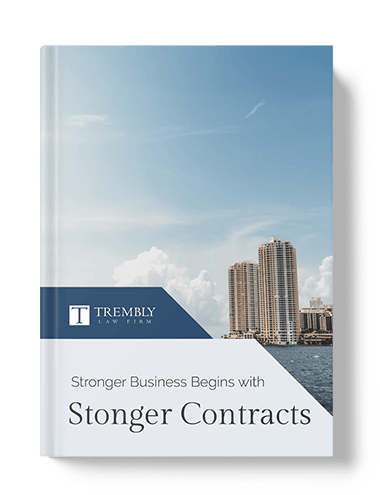As various cities and municipalities are lifting closure orders nonessential businesses, employers are scrambling to reopen and bring employees back to work. There are several issues that employers need to keep in mind in this scenario, and this article endeavors to identify some of the more potent concerns or issues that may arise.
1. When implementing “Return to Work” policies and procedures Employers need to ensure that the policies and procedure cannot be deemed discriminatory (whether direct or as a result of their impact) or retaliatory.
Employers should document the legitimate reasons for instructing employees to physically report back at work, undergo COVID-19 testing or temperature readings. Any such protocols should be implemented across the board, without exceptions and in a manner consistent with the guidelines herein.
2. Employers need to take into account the Families First Coronavirus Response Act (FFCRA) when dealing with employees with children whose schools are closed or for whom childcare is not available due to COVID-19.
Employers need to follow best practices, which includes: (1) Updating their employment policies and procedures to implement FFCRA & make plans to make additional changes as rules and regulations are being implemented; (2) training their owners, officers, supervisors and managers on how to implement their employment policies and procedures; and (3) implement FFCRA (and policies and procedures) fairly and uniformly.
For substantive guidance, see the Department of Labor’s Questions and Answers. Specifically:
- Regarding entitlement to FFCRA leave, see question 7.
- Regarding childcare issues, see question 10.
- Regarding documentation that employers must maintain, see questions 15-16.
- Regarding teleworking, see questions 17-22.
- Regarding job protection for employees currently on FFCRA leave, see question 43.
- Regarding the exemption for small business with less than 50 employees, see questions 4, 58 and 59.
3. Employees who do not want to return to work physically in the office.
Generally, in an “at-will” state (like Florida), an employer has the right to take an adverse employment action that is not discriminatory or retaliatory. In many cases, if an employee refuses to return to work, especially after the employer has taken reasonable steps to ensure the safety of employees, is a basis for discipline up to and including termination. The employer should also ensure that it complies with all aspects of the employer’s policies and procedures regarding disciplinary actions and termination.
Some exceptional circumstances:
- If the employee is/was on FFCRA leave or standard Family and Medical Leave Act (FMLA) leave, there is a job protection component that needs to be considered.
- Additionally, the employer cannot cut the employee’s FFCRA leave or standard FMLA leave short.
- If the employee is disabled (permanently or temporarily) and is entitled to reasonable accommodations, then reasonable accommodations must be offered which may include offering the ability to telework or flexible schedules.
4. Employers need to take steps to take reasonable steps to ensure the safety of their employees.
Employers need to take reasonable steps to ensure the safety of their employees. Employers should look to the CDC Guidelines on returning to work which are available. Additionally, the CDC also published mitigation strategies.
In addition to the CDC, OSHA has also published guidance on preparing work places for COVID-19. Specifically, employers should pay attention to the section titled “Steps All Employers Can Take to Reduce Workers’ Risk of Exposure” which recommends that employers: (1) Develop an Infectious Disease Preparedness and Response Plan; (2) Implement Basic Infection Prevention Measures; (3) Develop Policies and Procedures for Prompt Identification and Isolation of Sick People, if appropriate; (4) Develop, Implement, and Communicate about Workplace Flexibilities and Protections (see EEOC guidelines for example): (5) Implement Workplace Controls; and (6) Follow Existing OSHA Standards.
5. Employers need to comply with the EEOC’s guidance regarding testing, maintaining confidentiality and reasonable accommodations.
Employers need to review the EEOC’s guidance with respect to the American with Disabilities Act, Rehabilitation Act and other Employment Equal Opportunity Law. Some relevant sections of the EEOC’s guidance include: (1) Information Employers can request from employees [Questions A. through A.2]; (2) Measuring Employee’s Temperature [Question A.3]; (3) Testing employees for COVID-19 prior to return to work [Question A.6]; (4) Maintaining confidentiality of medical information obtained (Questions B.1 through B.3].
As to determining safety and accuracy of any testing, click here.
With respect to reasonable accommodations, private employers with 15 or more employees, state and local government employers, employment agencies, labor organizations, and joint labor-management committees must comply with the reasonable accommodation requirements of the ADA.
Employees with a disability are entitled (or likely entitled) to reasonable accommodations under the ADA. This may include persons who are temporarily disabled, such as a pregnant female that develops gestational diabetes or preeclampsia.
Some examples of reasonable accommodations may include:
- Changing job tasks to ensure less interaction/traffic.
- Placing individual in an office or workspace with less traffic.
- Changing schedule to ensure less interaction/traffic.
- Providing or adjust a product or equipment (e.g. (plexiglass barrier, air purifier, etc.), or software/hardware for telework.
- Allowing a flexible work schedule.
- Note: the employer does not have to create a new position, no other employees need be transferred or terminated in order to make a position vacant for the purpose of reassignment, and the individual with a disability should be qualified for the new position.
6. Conclusion
Businesses need to reopen and people need to get back to work. This, no one disputes. Employers just need to be aware of these potential issues and make sure they are addressing them when reopening. Of course, it’s best practice to be guided by knowledgeable employment counsel. Trembly Law is here to help, so please call us today at (305) 431-5678.

















